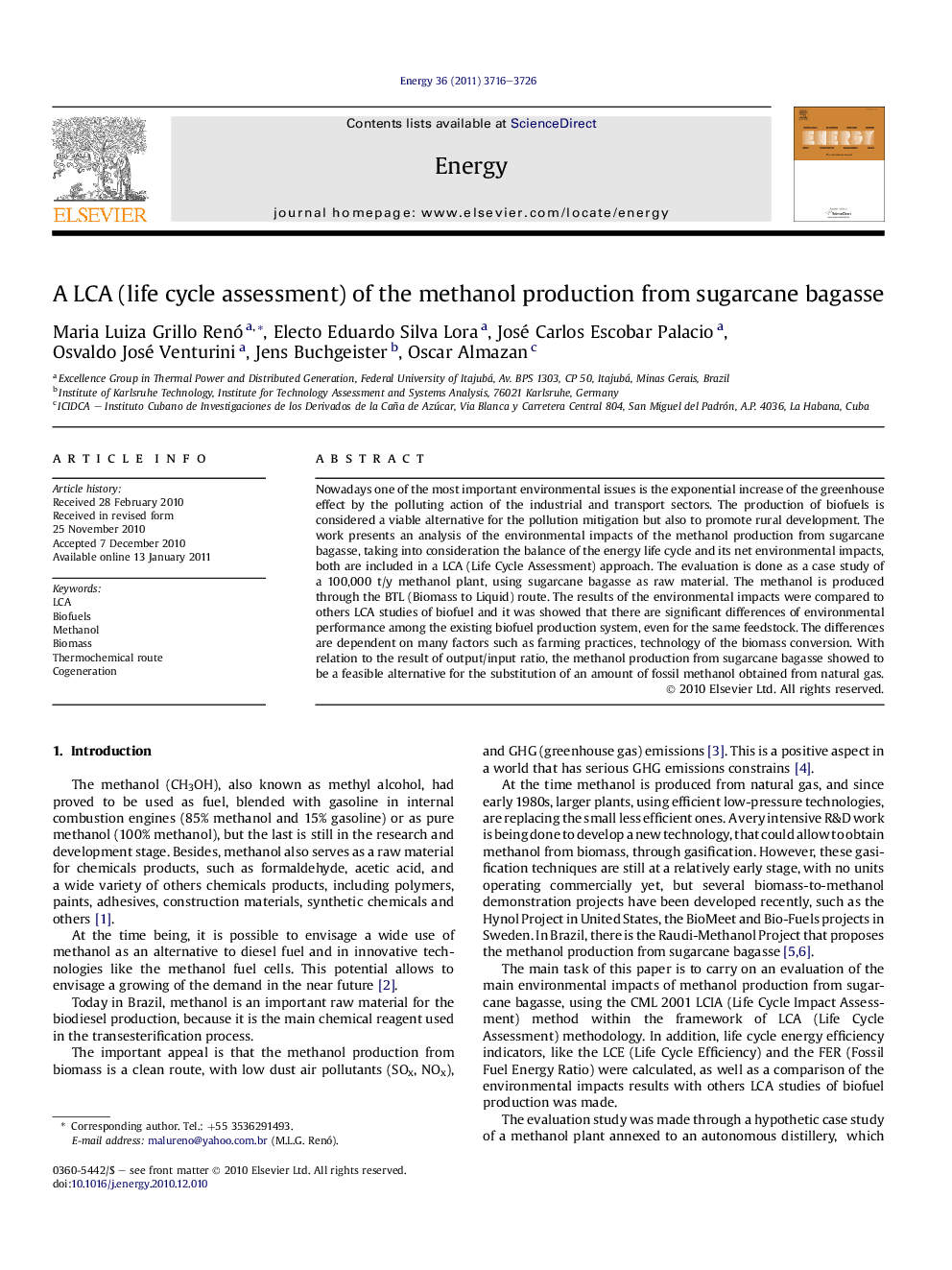| Article ID | Journal | Published Year | Pages | File Type |
|---|---|---|---|---|
| 1734706 | Energy | 2011 | 11 Pages |
Nowadays one of the most important environmental issues is the exponential increase of the greenhouse effect by the polluting action of the industrial and transport sectors. The production of biofuels is considered a viable alternative for the pollution mitigation but also to promote rural development. The work presents an analysis of the environmental impacts of the methanol production from sugarcane bagasse, taking into consideration the balance of the energy life cycle and its net environmental impacts, both are included in a LCA (Life Cycle Assessment) approach. The evaluation is done as a case study of a 100,000 t/y methanol plant, using sugarcane bagasse as raw material. The methanol is produced through the BTL (Biomass to Liquid) route. The results of the environmental impacts were compared to others LCA studies of biofuel and it was showed that there are significant differences of environmental performance among the existing biofuel production system, even for the same feedstock. The differences are dependent on many factors such as farming practices, technology of the biomass conversion. With relation to the result of output/input ratio, the methanol production from sugarcane bagasse showed to be a feasible alternative for the substitution of an amount of fossil methanol obtained from natural gas.
► High and favorable energy ratio value of methanol from bagasse. ► Sugarcane production has a low participation on environmental impacts. ► The gasification and methanol synthesis can be combined in a biorefinery. ► Farming biomass could cause the environmental impact land competition. ► The trash of sugarcane can be used successfully in methanol production.
